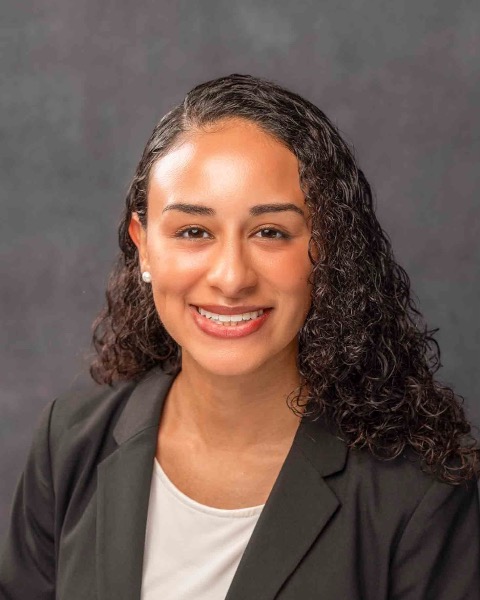Socioeconomic
Enhancing Representation of Spine Surgeons in Virtual Symposiums Correlates with Increased Confidence and Familiarity in the Neurosurgical Field
Friday, February 21, 2025

Julia Duvall, MD
Resident
Duke University Department of Neurosurgery
Durham, NC, US
Presenting Author(s)
Introduction: Women and racial and ethnic minorities are significantly underrepresented in neurosurgical residency programs. Among these residents, an even smaller percentage go on to pursue spine as a subspecialty. As a result, the demographics of spine surgeons are not representative of the general population in the United States. To create a pipeline for underrepresented groups to pursue neurosurgery, we developed "Future Leaders in Neurosurgery Symposium for Underrepresented Students,'' a virtual event aimed at exposing undergraduate students to the field of neurosurgery and reducing this disparity.
Methods: Virtual events were held from 2021 to 2023. Each included 8 hours of programming including career and research panels from neurosurgeons, surgical case discussions, an operating room tour and resident panel, session showcasing neurosurgical research, and small-group breakout sessions. Subspecialty information was collected from attending neurosurgeon speakers. Demographic information about attendees was collected from pre- and post-symposium surveys.
Results: Over 1,000 attendees participated across the three symposia. Attendance at the third symposium grew exponentially compared to the first two (n=464 vs. n=256-282). Those identifying as Black (40.5-56.8%), Hispanic (23.5-29.8%), and female (70.8-77%) made up increasingly large proportions of attendees. During the 2021 and 2022 symposiums, 3 speakers were practicing spine surgeons, while the 2023 symposium featured 8 current spine surgeons out of 14 total speakers and panelists. Based on the sign-test, applicants showed increased familiarity with the field (p < 0.001), increased confidence in their abilities to become neurosurgeons (p=0.014), and increased exposure to neurosurgeons from diverse gender, racial, and ethnic backgrounds (p < 0.001 for all categories)
Conclusion : Our results indicate growing participation from spine surgeons as well as female and underrepresented undergraduate students interested in neurosurgery. Having multiple spine surgeons participate across multiple symposia may offer an opportunity for longitudinal mentorship. As an equitable workforce may enhance patient outcomes, we will continue to promote the importance of diversity within spine surgery with future symposia.
Methods: Virtual events were held from 2021 to 2023. Each included 8 hours of programming including career and research panels from neurosurgeons, surgical case discussions, an operating room tour and resident panel, session showcasing neurosurgical research, and small-group breakout sessions. Subspecialty information was collected from attending neurosurgeon speakers. Demographic information about attendees was collected from pre- and post-symposium surveys.
Results: Over 1,000 attendees participated across the three symposia. Attendance at the third symposium grew exponentially compared to the first two (n=464 vs. n=256-282). Those identifying as Black (40.5-56.8%), Hispanic (23.5-29.8%), and female (70.8-77%) made up increasingly large proportions of attendees. During the 2021 and 2022 symposiums, 3 speakers were practicing spine surgeons, while the 2023 symposium featured 8 current spine surgeons out of 14 total speakers and panelists. Based on the sign-test, applicants showed increased familiarity with the field (p < 0.001), increased confidence in their abilities to become neurosurgeons (p=0.014), and increased exposure to neurosurgeons from diverse gender, racial, and ethnic backgrounds (p < 0.001 for all categories)
Conclusion : Our results indicate growing participation from spine surgeons as well as female and underrepresented undergraduate students interested in neurosurgery. Having multiple spine surgeons participate across multiple symposia may offer an opportunity for longitudinal mentorship. As an equitable workforce may enhance patient outcomes, we will continue to promote the importance of diversity within spine surgery with future symposia.

.jpg)